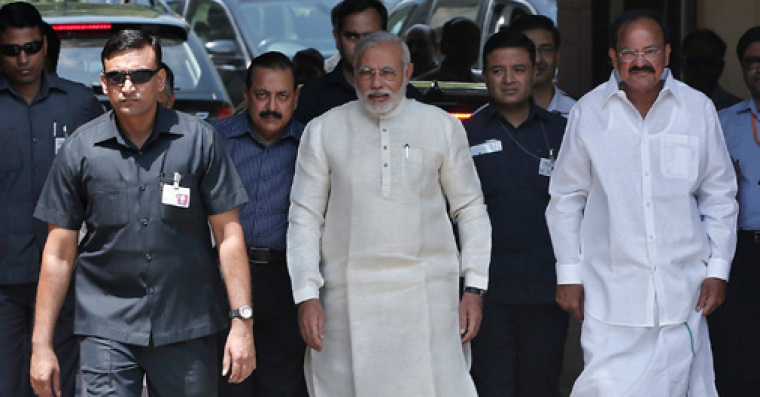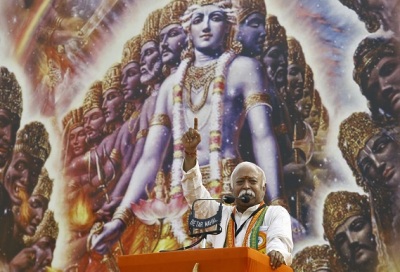India's Prime Minister says media exaggerates conversion issue

NEW DELHI (Christian Examiner) — India's Prime Minister Narendra Modi continues to convey ambivalence about the issue of forced conversions of religious minorities to Hinduism as he dismisses claims and concerns about the issue.
The Associated Press reported Tuesday that Modi told a delegation of religious leaders the forced conversions are an exaggeration of the media.
"We told him we feel insecure and fearful," said Roman Catholic priest Dominic Emmanuel, one of several religious leaders who met with Modi in recent days. "We told him, 'If there were just two words from your side, prime minister, we would feel so much better.'"
According to Emmanuel, Modi claimed it wasn't his role to speak directly to the issue.
To date, Modi has only denounced the conversions indirectly through a statement made by the government's ruling Bharatiya Janata Party (BJP). Earlier this month, BJP President Amit Shah announced on behalf of the party that it does not favor the mass conversion ceremonies and claimed the BJP intends to support an anti-conversion law.
The BJP's statement came following criticism that Modi had done little to stop the conversions. Though India is mostly Hindu, Muslims and Christians make up the most sizable groups within the country's religious minorities. Islam is the largest of the two, and other religions from Judaism to Zoroastrianism are represented in even smaller numbers.

Since Modi long has been a member of the Rashtriya Swayamsevak Sangh (RSS), one of the groups credited with the mass conversions or "homecomings," many question if Modi supports the agenda to see India become an exclusively Hindu nation. Even more questions emerged as the government launched a new initiative, led by Modi, requiring ministers and bureaucrats to report to work on Dec. 25, the previous Prime Minister's birthday, in observance of "Good Governance Day."
Nationalist Congress Party state vice president Trajano D'Mello told Indian news publication Firstpost that the move was part of the Hindu nationalists' agenda.
"The more they try to kill Christmas spirit with their crooked ways, the Christmas spirit will glow. The deputy chief minister and his altar boys should come out clearly on the attack of BJP on Christmas," he said.
Although only two percent of the people in India celebrate Christmas as a religious holiday, traditionally it has been observed as a day off from school and work, reported AP.
"It's not merely undermining the festival of Christmas, but it is trying to segregate a community and its festival," Rev. Emmanual said.
Whether payoffs or threatened violence are used to force Muslims to convert to Hinduism, or, the government action to cancel Christmas observance, the issues threatening religious minorities in India pose a threat to the nation's history of proclaimed religious diversity.